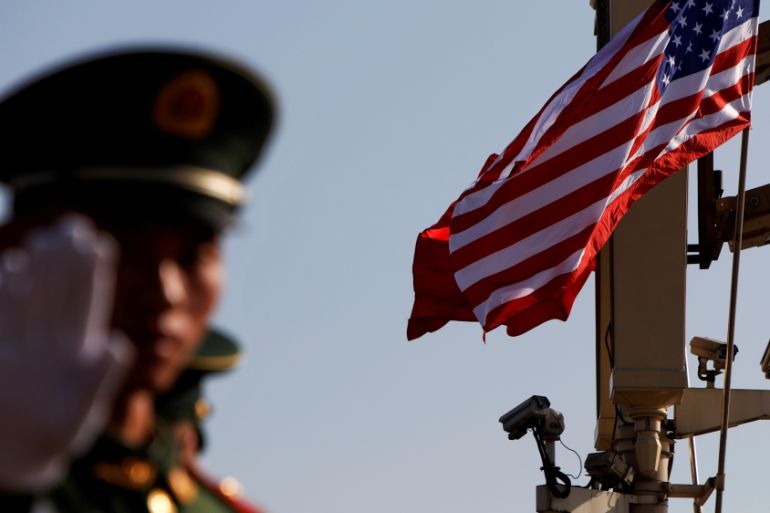Researcher who took refuge in China consulate in US custody
Juan Tang is among four scientists charged with visa fraud for allegedly hiding their ties to the Chinese military.

A Chinese researcher who took refuge at China’s San Francisco consulate in a bid to avoid visa fraud charges has been arrested, according to the US Department of Justice, and is expected to appear in court on July 27.
Juan Tang, who is accused of hiding her ties to the Chinese military when she applied for a visa to work in the United States, was being held at a jail in Sacramento County, California, records showed on Friday.
The US Department of Justice, in a statement, said Tang was taken into “federal custody by the FBI on an arrest warrant” and was expected to appear in a federal court on Monday.
Tang’s detention came as the department warned Americans living in China of the “heightened risk of arbitrary detention”. It also announced in a separate statement that a Singaporean man had pleaded guilty to using his political consultancy in the US as a front to collect information for Chinese intelligence.
The developments come against the backdrop of escalating tensions between Washington and Beijing, with ties deteriorating over trade, China’s handling of the coronavirus pandemic and its policies in the South China Sea, Hong Kong and Xinjiang.
|
|
Earlier on Friday, Beijing also ordered the US to shut down its consulate in the city of Chengdu. The move was in retaliation for Washington’s decision to shut down China’s consulate in Houston amid allegations that Chinese agents tried to steal medical and other research in the state of Texas.
China dismisses the claim as “malicious slander” and urged the US to “create the necessary conditions for bringing the bilateral relationship back on track”.
Crackdown on espionage
The US has long accused China of intellectual property theft and is cracking down on Chinese spying, with the Department of Justice saying the FBI has been interviewing visa holders in more than 25 US cities suspected of hiding their ties to the Chinese military.
Tang, 37, is the latest to be charged with visa fraud in the US.
Court filings at a US District Court in San Francisco this week said Tang, who worked at the University of California, Davis, falsely claimed on her visa application that she had not served in the Chinese military.
But the Department of Justice said the FBI found photos of Tang dressed in military uniform and reviewed articles in China identifying her military affiliation. Investigators said they believe Tang sought refuge at the consulate after they interviewed her at her home in Davis on June 20.
The department would not say how Tang emerged from the consulate, but an official who insisted on anonymity told reporters she did not have immunity as she was not declared as a diplomatic official.
Three other Chinese scientists were arrested on similar charges, the department said, identifying them as Xin Wang, Chen Song and Kaikai Zhao.
“This is another part of the Chinese Communist Party’s plan to take advantage of our open society and exploit academic institutions. We will continue to conduct this investigation together with the FBI,” said John Demers, assistant attorney general for national security, in a statement.
Beijing is yet to comment on the cases.
|
|
In a separate case on Friday, the Department of Justice said a Singaporean man who set up a fake consulting site to solicit information from US government and military workers pleaded guilty to acting as an illegal agent of Chinese intelligence.
In the plea, Jun Wei Yeo admitted to working between 2015 and 2019 for Chinese intelligence “to spot and assess Americans with access to valuable non-public information, including US military and government employees with high-level security clearances”.
It said Yeo, who is also known as Dickson Yeo, paid some of those individuals to write reports that were ostensibly for his clients in Asia, but sent instead to the Chinese government. Sentencing for Yeo will be in October, according to the department.
Also on Friday, the US State Department sent out a notice warning Americans in China of a “heightened risk of arbitrary detention”.
“US citizens may be subjected to prolonged interrogations and extended detention for reasons related to ‘state security’,” the notice said.
US citizens may be arrested or deported for “sending private electronic messages critical” of the Chinese government, it said. The notice gave no indication of what prompted the warning.